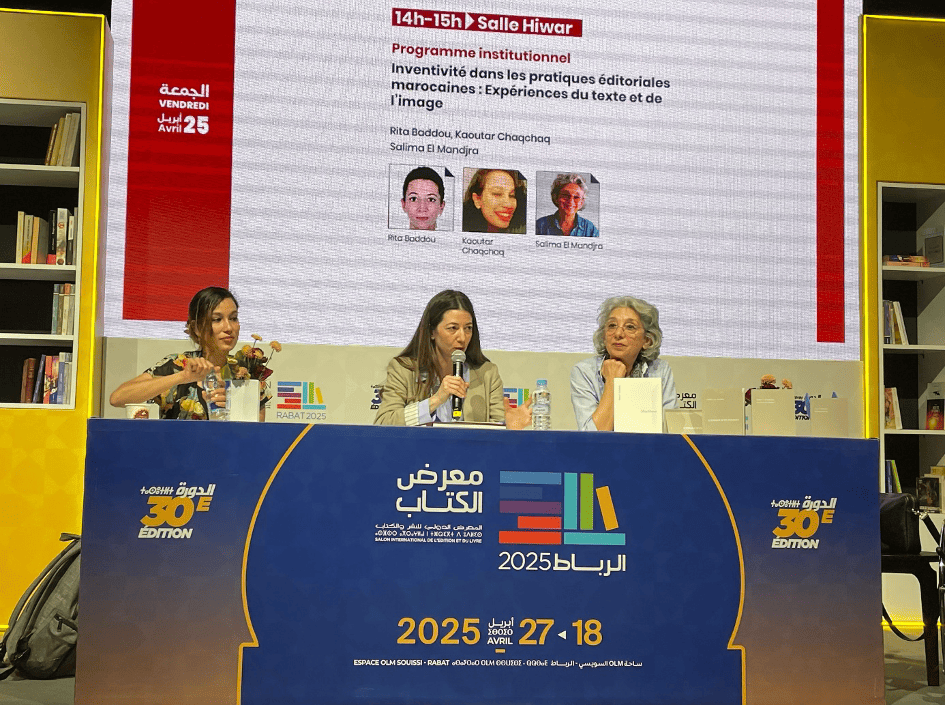On April 25th, during the International Book and Publishing Fair (SIEL) in Rabat, the session "Inventiveness in Moroccan Editorial Practices: Experiences of Text and Image" gathered three inspiring voices, Kaoutar Chaqchaq, Salima El Mandjra, and Rita Baddou.


On April 25th, during the International Book and Publishing Fair (SIEL) in Rabat, the session "Inventiveness in Moroccan Editorial Practices: Experiences of Text and Image" gathered three inspiring voices, Kaoutar Chaqchaq, Salima El Mandjra, and Rita Baddou.
Kaoutar Chaqchaq, a sociologist of literature and a member of the Asameena collective, shared her experience within a group of five women authors. She emphasized the aesthetic decline seen in North African publishing houses and presented their latest collaborative work, "All We Got". This book, crafted through collective writing and drafts, addresses crucial issues such as the Palestinian cause. Their approach not only reflects creative solidarity but also responds to financial constraints faced by emerging writers.
Salima El Mandjra, an architect and literary figure, described her journey of self-publishing four limited-edition books under her own publishing label. Her works, including "L’espage d’un instant" and the most recent "MurMurer", which focuses on the city of Tangier, explore new creative formats. She highlighted the restrictive environment within traditional publishing houses and affirmed her commitment to creativity and sharing, beyond commercial considerations.
Finally, Rita Baddou, a historian and representative of Bouillon Culture, spoke about their mission to reinvent knowledge transmission. Through innovative graphic design and narrative formats, including comics, Bouillon Culture aims to make scientific and complex topics more accessible and engaging to wider audiences.
The session emphasized the need for creativity, and new forms of expression within editorial practices, inspiring attendees with powerful examples of resilience and artistic ingenuity. It underscored how editorial spaces must evolve to reflect the complexities of contemporary society, giving voice to diverse narratives. By showcasing real-life stories of individuals and collectives who continue to create, publish, and share despite constraints, the session reinforced the idea that freedom of expression is both a right and a responsibility. It concluded with a call to action: to reimagine editorial work not as a rigid format, but as a living and adaptive process one that welcomes innovation and sustains the cultural vitality of our society.
